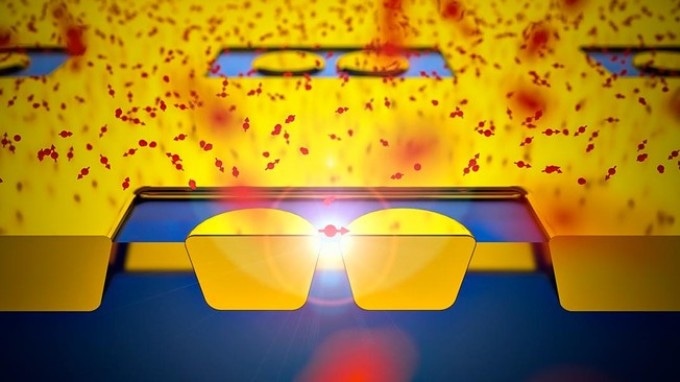Feb 21 2017
 Credit: � 2017 EPFL
Credit: � 2017 EPFL
Valentin Flauraud and co-authors are now congratulated for their publication in Nano Letters entitled "In-Plane Plasmonic Antenna Arrays with Surface Nanogaps for Giant Fluorescence Enhancement".
Optical nanoantennas have immense potential to improve light-matter interactions at the nanometer scale, yet lack of scalability and fabrication accuracy presently limit ultimate antenna performance and applications. The region of maximum field localization and enhancement (i.e., hotspot) cannot be readily accessed by the sample in almost all designs as it is buried into the nanostructure.
Furthermore, the existing large-scale fabrication techniques lack reproducible geometrical control less than 20 nm. This publication describes a new nanofabrication technique that uses template stripping, etch back, and planarization in order to expose the excitation hotspot at the surface, providing a key improvement over standard electron beam lithography methods.
Large flat surface arrays of in-plane nanoantennas are presented. These nanoantennas feature gaps as tiny as 10 nm with sharp edges, full surface accessibility of the hotspot confined region and exceptional reproducibility.
The optical performance of plasmonic nanoantennas is drastically improved by the novel fabrication approach in order to yield giant fluorescence enhancement factors up to 104–105 times, along with nanoscale detection volumes in the 20 zL range.
The method is totally adaptable and scalable to different antenna designs. Valentin Flauraud and co-authors predict a wide range of applications by using these in-plane antenna geometries ranging from large-scale ultrasensitive sensor chips to live cell membrane investigations and microfluidics.